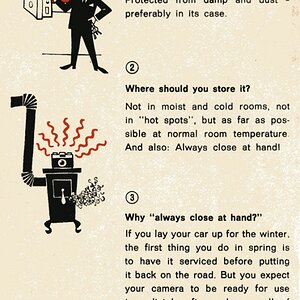raptorman
TPF Noob!
- Joined
- Apr 17, 2009
- Messages
- 47
- Reaction score
- 0
- Can others edit my Photos
- Photos OK to edit
I can't give an intelligent response to this. I suspect the nature of the claim might have some bearing on it. You may be absolutely right, but I suspect the officers of the corporation will have some liability. (Is there a lawyer in the house?)
Either way, I believe the better way to limit my liability is with a contract. I use a contract for weddings, since the amount of money is substantial and emotions would be high (to say the least) if something goes wrong. There's no good way to do additional photography to complete a wedding contract. And, being such a personal, emotional event, I'm certain an angry couple would want to punish me in the worst way, making it their new hobby to get it done.
My wedding contract is VERY brief, outlining the payment schedule and stating that if I fail to deliver, my liability is limited to the refund deposits paid.
-Pete
What will you do if the court invalidates your limitation of liability clause? (under Belgian law a clause limiting your liability to the refund of deposits paid wouldn't stand a chance in court when used against a consumer, but that's also because under Belgian law, consumers are considered idiots who can't read or think for themselves so our government does it for them)
The combination of a well written limitation of liability clause, using a LLC, PLC..., a good insurance, using common sense, good advisors... will greatly reduce the risk of doing business when used altogether.













